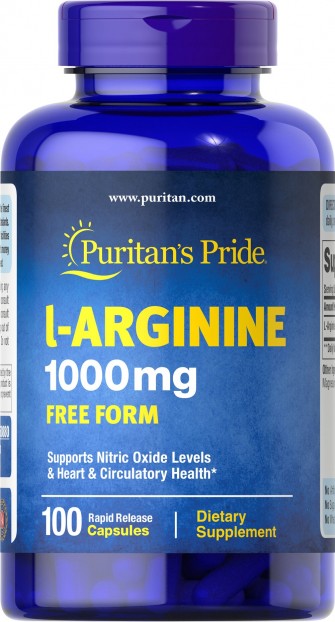L-Arginine is a semi-essential amino acid that plays a vital role in various bodily functions. As a precursor to nitric oxide, it has become a popular supplement for those seeking to enhance athletic performance, improve cardiovascular health, and support overall wellness. This comprehensive guide explores the ins and outs of L-Arginine 1000 mg, including its benefits, recommended dosages, potential side effects, and much more.
What is L-Arginine?
L-Arginine is an amino acid that is crucial for the production of proteins in the body. It is classified as semi-essential because, while the body can produce it, there are times when supplementation may be necessary. It is particularly important for the production of nitric oxide, a molecule that helps blood vessels relax and improves circulation.
Benefits of L-Arginine 1000 mg
1. Enhanced Nitric Oxide Production
L-Arginine significantly increases nitric oxide levels, which can lead to various health benefits, including improved blood flow and oxygen delivery to muscles during exercise.
2. Improved Cardiovascular Health
Research suggests that L-Arginine can support heart health by lowering blood pressure and improving circulation, making it beneficial for individuals with cardiovascular conditions.
3. Increased Exercise Performance
Supplementation with L-Arginine may enhance exercise performance by improving endurance and reducing fatigue. This is particularly useful for athletes and fitness enthusiasts.

4. Immune System Support
L-Arginine plays a role in immune function and may help the body fight off infections and illnesses.
5. Benefits for Sexual Health
Due to its role in improving blood flow, L-Arginine is often considered a supplement for enhancing sexual function and performance.
How Does L-Arginine Work?
L-Arginine works by converting into nitric oxide in the body, which causes blood vessels to dilate and relax. This process improves blood flow and oxygen delivery to various tissues and organs, facilitating better overall function and performance.
Recommended Dosage of L-Arginine 1000 mg
The typical dosage of L-Arginine ranges from 2000 mg to 6000 mg per day, divided into multiple doses. For those considering L-Arginine 1000 mg supplements, it is advisable to consult with a healthcare provider to determine the appropriate dosage based on individual needs and health conditions.
Potential Side Effects of L-Arginine
While L-Arginine is generally considered safe for most people, some may experience side effects such as:
- Nausea
- Diarrhea
- Abdominal pain
- Allergic reactions in rare cases
People with certain medical conditions, such as asthma or low blood pressure, should use caution and seek medical advice before starting supplements.

Comparison of L-Arginine Supplements
| Brand | Dosage per Serving | Price (Approx.) | Form | Rating |
|---|---|---|---|---|
| Brand A | 1000 mg | $20 | Capsule | 4.5/5 |
| Brand B | 2000 mg | $25 | Powder | 4.0/5 |
| Brand C | 1000 mg | $15 | Tablet | 4.8/5 |
Pros and Cons of L-Arginine Supplements
Pros
- Supports cardiovascular health
- Enhances athletic performance
- May improve sexual health
- Boosts the immune system
- Widely available and easy to obtain

Cons
- Possible side effects in some individuals
- Interactions with certain medications
- Not suitable for everyone, particularly those with specific health conditions
Frequently Asked Questions (FAQs)
1. What is the best time to take L-Arginine?
The best time to take L-Arginine is approximately 30 minutes before exercise to maximize its performance-enhancing effects. Some individuals may also benefit from taking it on an empty stomach to improve absorption.
2. Can I take L-Arginine with other supplements?
Yes, L-Arginine can be taken with other supplements; however, it is essential to consult with a healthcare professional to avoid any potential interactions, especially with medications affecting blood pressure.
3. Is L-Arginine safe for everyone?
L-Arginine is generally safe for most people, but those with certain health conditions, such as asthma, heart disease, or a history of strokes, should consult a doctor before using it.
4. How long does it take to see results from L-Arginine?
Results can vary depending on individual health conditions and the reason for use. Some may notice improvements in energy levels or exercise performance within a few days, while others may take weeks to see significant effects.
5. Can L-Arginine help with erectile dysfunction?
Some studies suggest that L-Arginine may help improve erectile function due to its vasodilating properties. However, individual responses may vary, and it is advisable to consult a healthcare provider for comprehensive treatment options.
Conclusion
L-Arginine 1000 mg is a versatile supplement that can provide numerous health benefits, particularly for cardiovascular health, exercise performance, and immune function. While generally safe, it is essential to consider the potential side effects and consult a healthcare professional before starting supplementation. By understanding the various aspects of L-Arginine, individuals can make informed decisions to enhance their health and performance.